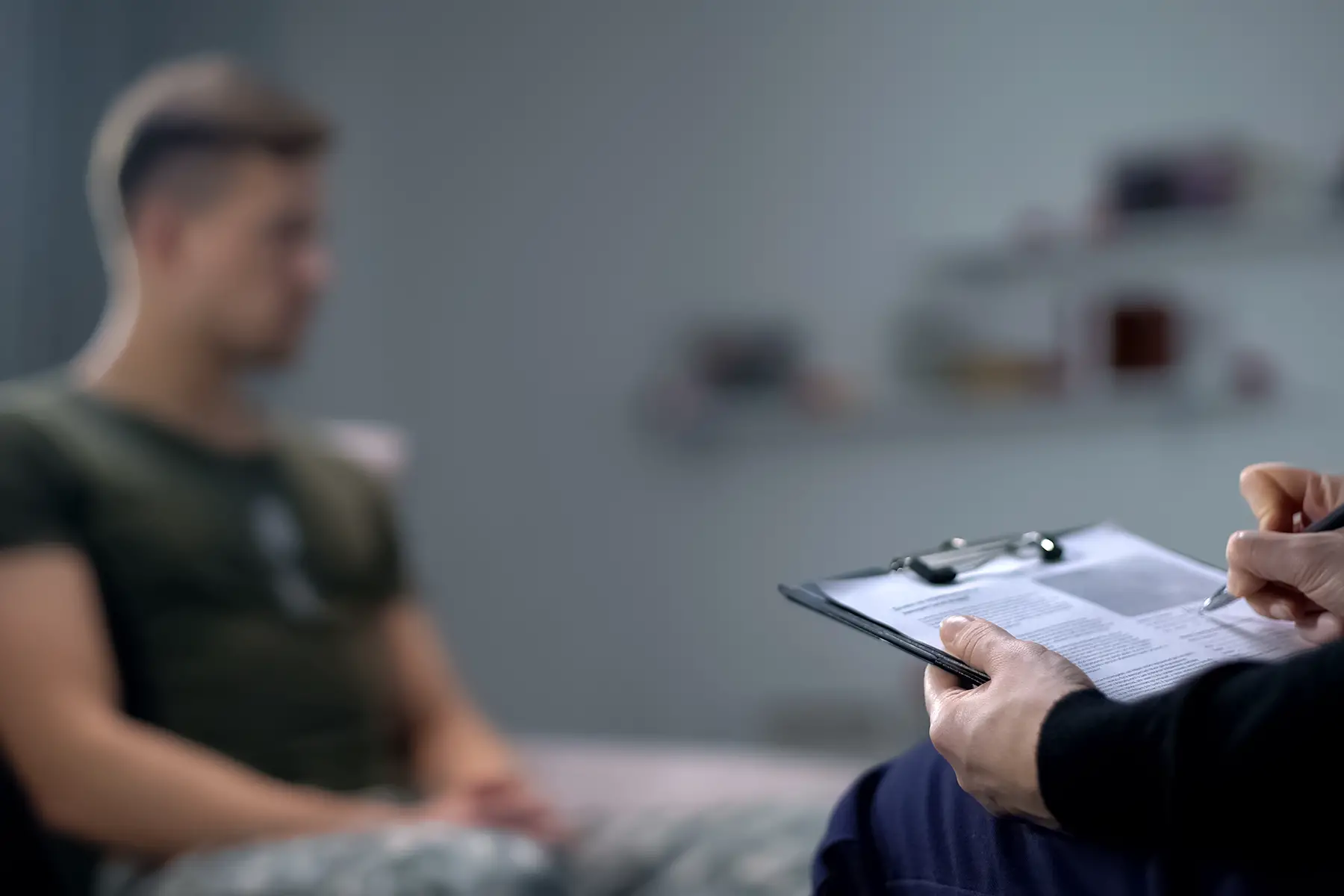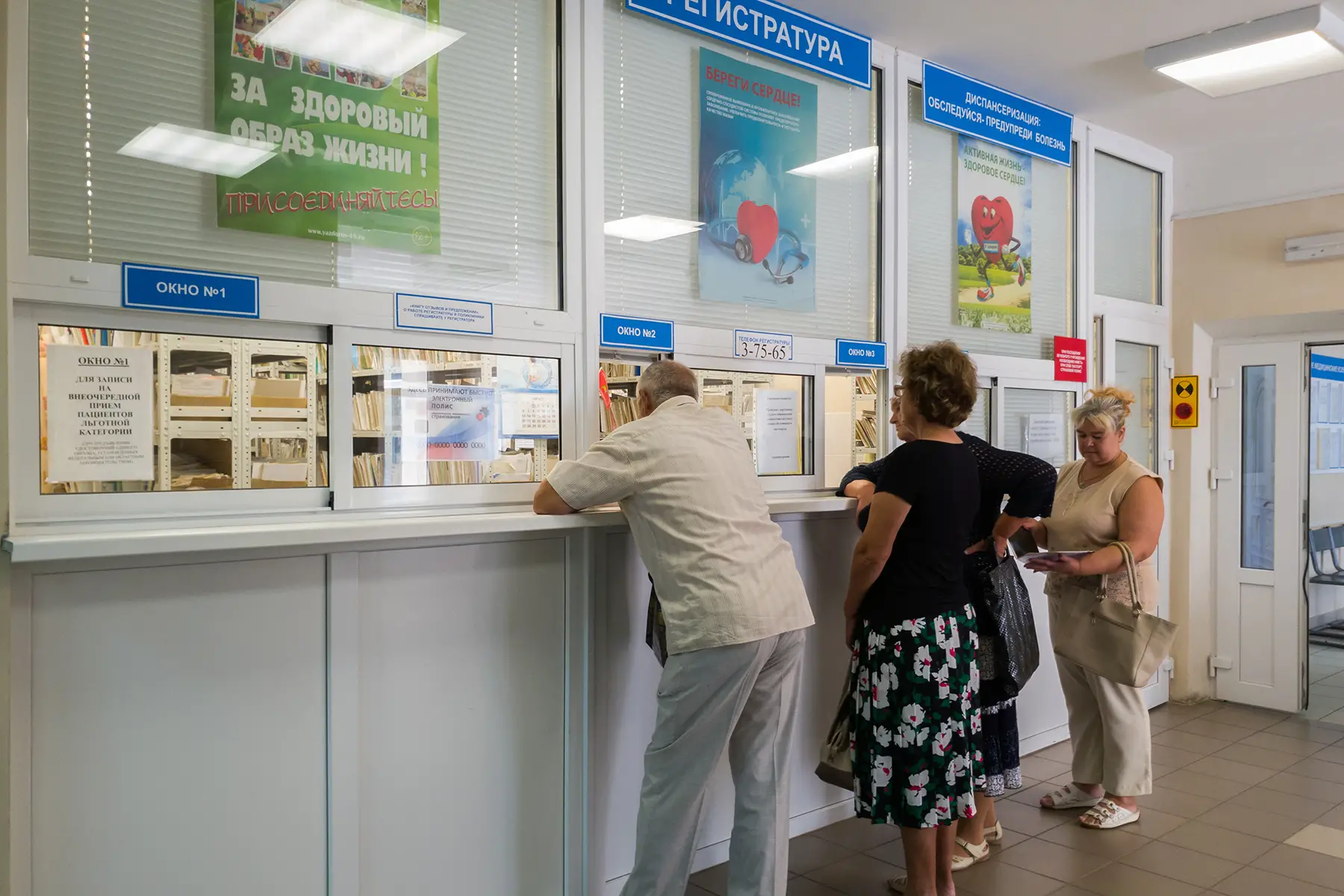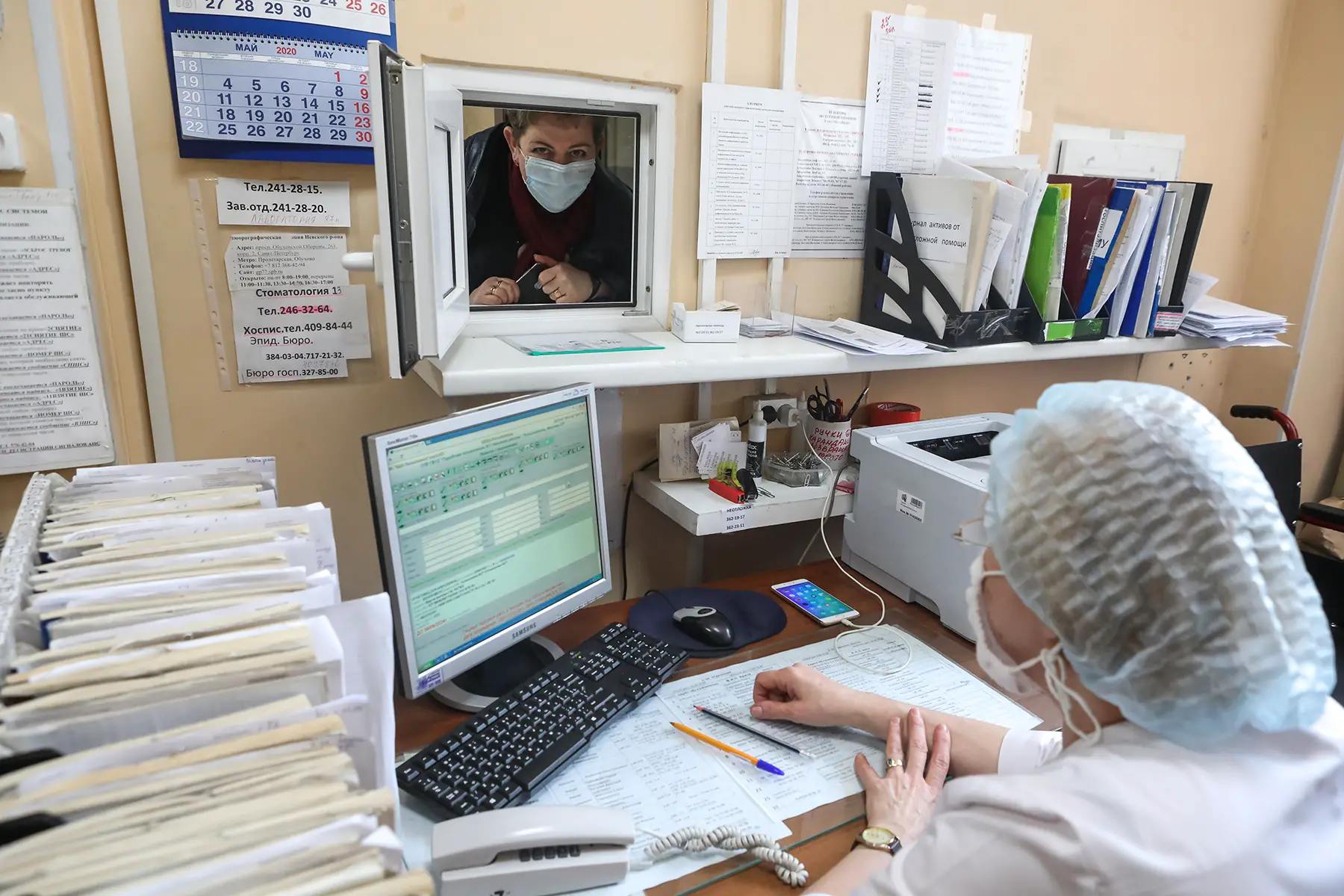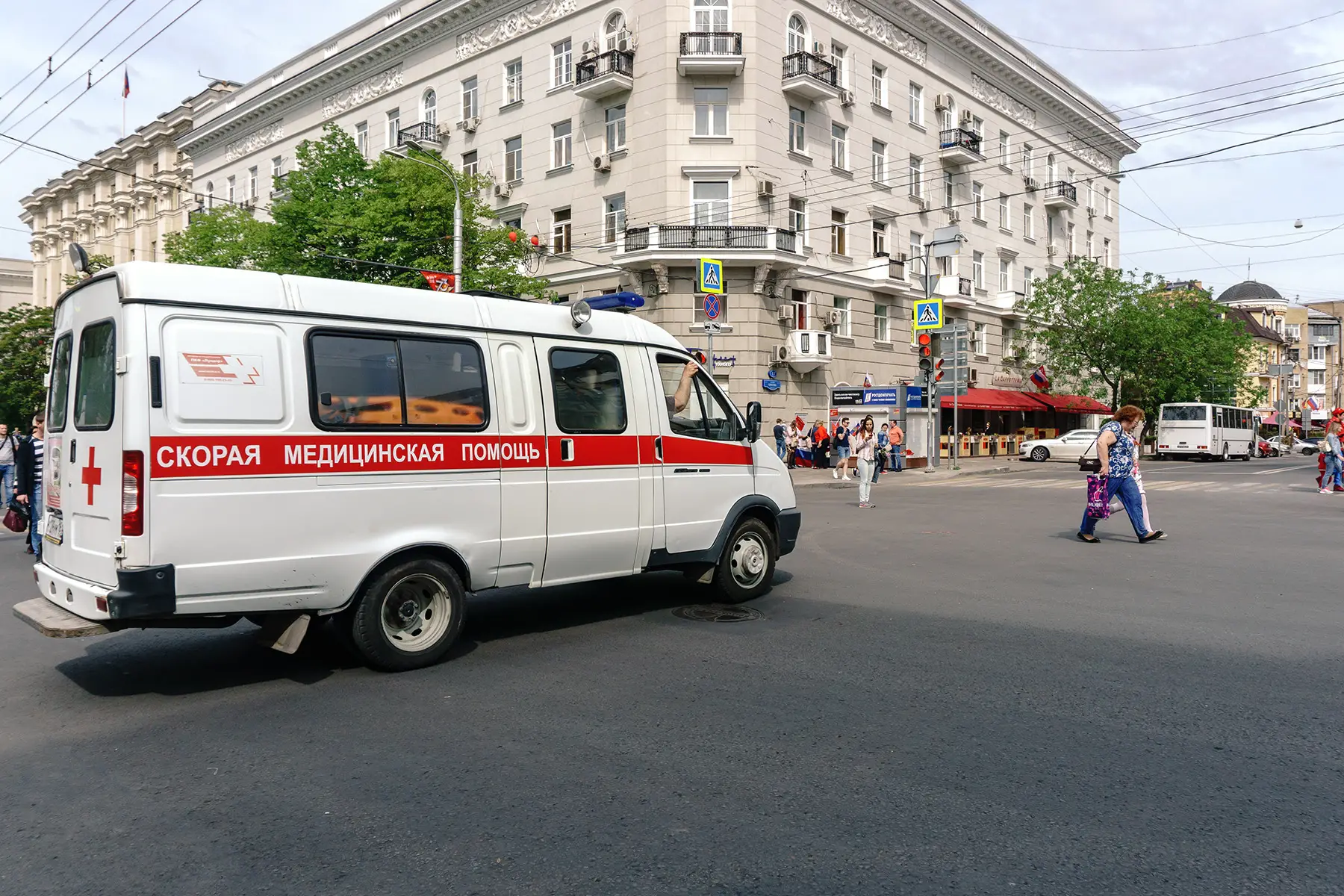Important notice from the Editor in Chief
Maintaining our Russian site is a delicate matter during the war. We have chosen to keep its content online to help our readers, but we cannot ensure that it is accurate and up to date. Our team endeavors to strike the right balance between giving information to those who need it, and respecting the gravity of the situation.
According to Russian law, mental healthcare is a right for all Russian citizens. However, due to poor funding, the stigma surrounding mental illnesses, and traditional methods that are still practiced today, this law is not always enforced. That said, recent reforms in the Russian mental healthcare system have led to better treatment for those who need it. But while there has been a growing awareness and understanding of therapy and mental health services in the last few years, there are still some improvements to be made.
To help you understand what mental health services are available and how to access them, this article includes the following information:
- An overview of mental health in Russia
- Mental healthcare services in Russia
- How to access mental health services in Russia
- Insurance for mental healthcare in Russia
- Psychologists, psychiatrists, and therapists in Russia
- Drug and alcohol services in Russia
- Services dealing with eating disorders in Russia
- Mental healthcare for people in Russia with severe mental health problems
- Services in Russia for children and young people
- Mental healthcare services in Russia for special groups
- Mental health prevention and education programs in Russia
- Emergency support and crisis lines in Russia
- Useful resources
An overview of mental health in Russia
In order to better understand the country’s current mental health system, it is useful to look at some of Russia’s history. Following the fall of the Soviet Union, mental health disorders and suicide rates skyrocketed. In fact, according to the National Center for Biotechnology Information, in 2002, Russian men had the second-highest suicide rate of all groups in Europe.

However, according to a 2011 report from the World Health Organization (WHO), mental health was of secondary importance in the Russian healthcare system during this time. Furthermore, care was mainly in-patient institution-based, rather than out-patient community-based. Historically, medical doctors were the ones who treated mental illnesses, and psychologists, social workers, and therapists were not common.
The general public often considered people with mental disorders as dangerous or weak-minded. In fact, many people considered it normal to send them to psychiatric hospitals against their will. Some even thought this was necessary. The idea of recovery was not widely accepted, either, and many of these beliefs remain in Russian culture today.
However, recent changes in laws have created a mental healthcare system. That said, it is still in its early stages, and there is not enough funding. A lack of education and some cultural beliefs have also hindered improvement. Still, policy changes in 2020 have led to better living conditions for those residing in psychiatric hospitals in Russia.
Mental healthcare services in Russia
Russia’s Ministry of Health is in charge of funding the country’s healthcare system, which includes funding mental health services and creating laws regarding mental health services. However, the government often distributes funds based on past spending, rather than on a region’s needs according to its population.
Fortunately, though, there are some free mental health services available to the public. This includes state-funded psychotherapy as well as free emergency hotlines. There are also private mental health clinics, which have become more common. These offer specialized treatments.
What is the difference between free and paid consultations?
It is important to be aware that there are some differences between free consultations in a state institution and paid consultations in private clinics. For instance, clinics that are funded by the state are usually only available to certain groups of people. One such example is Moscow’s free mental health services which are only available to residents of Moscow or those who work there. Similarly, a children’s center can only take child patients, and crisis centers are only for those who are experiencing a crisis.

Notably, Moscow residents are eligible for five psychological consultations, two sessions of psychological diagnostics and consultations with a clinical psychologist, three training programs, and eight sessions of psychological rehabilitation per year.
Unfortunately, workers at state clinics tend to be overworked and underpaid and sometimes lack adequate training. Therefore, you might receive better care at a private clinic. Private psychologists tend to be more specialized, but it is up to you to find an appropriate center. Your general doctor can also help refer you to a private clinic.
Just bear in mind that mental health is a taboo topic in Russian culture. In fact, one private mental health clinic’s website states that it is difficult to get a job or a driver’s license after having a mental illness diagnosis. For this reason, many clinics offer anonymous treatment. You can ask if your clinic offers this before you register as a patient.
How to access mental health services in Russia
If you want to see a psychotherapist, you can ask your general doctor to give you a referral. You can also contact an outpatient mental health clinic or call the psychiatric department of a hospital. Alternatively, you can call one of Russia’s psychological help hotlines, where you will receive more information on mental health services in your area. Notably, free state clinics and hotlines don’t require referrals.

Some private clinics require a doctor’s referral while others do not. In addition to a referral, you will need to bring your passport and proof of health insurance with you. You will also need to fill out new patient paperwork during your first visit.
Insurance for mental healthcare in Russia
Free public health insurance is available to Russian citizens and residents, and this covers mental health services. However, if you are a non-resident, then you might not qualify for state-funded health coverage. In that case, you will need to take out private health insurance.
Unlike in other countries, private health clinics in Russia are able to accept public health insurance. You can find a list of private clinics that accept public health insurance on the Federal Compulsory Medical Insurance Fund website. Alternatively, you can call and check with your clinic to make sure they accept your insurance prior to your visit.
Psychologists, psychiatrists, and therapists in Russia
In Russia, psychologists, therapists, and psychiatrists are all distinct professions. A psychologist is not considered a doctor, but more of a counselor, and they may or may not have formal education. Note that a psychologist does not prescribe medication.
A psychotherapist, on the other hand, is considered a doctor and has formal education. Psychotherapists can prescribe medication and are more likely to specialize in an area. For example, a psychotherapist might only work with a specific mental health disorder or a specific group of people.

Meanwhile, a psychiatrist has medical education, specifically on the treatment of mental health disorders with medicine. Psychologists, psychotherapists, and psychiatrists often work together to come up with a treatment plan for patients.
As mentioned, public health insurance covers mental health services in Russia. However, private health insurance plans may differ in what they cover, so it is best to call your provider and ask if they cover mental health.
If you will be paying out of pocket, then a single session with a psychotherapist can range from 500 ₽ to 10,000 p, with the average cost being around 3,000 ₽.
Finding a therapist in Russia
It is important to be careful when choosing a therapist in Russia. Unfortunately, it is common to come across scammers or inadequate psychologists that do not have proper training. Therefore, make sure you ask about their education and background.
Here are a few directories that verify education before listing a therapist:
Unsurprisingly, you are more likely to find English-speaking therapists in Russia’s bigger cities, such as Moscow or St. Petersburg. Many clinics also list on their website whether English-speaking therapists are available. Just remember that state clinics will likely have longer waiting times.
During your first appointment at either a public or private clinic, you will have a chance to get to know your therapist, explain your situation, and ask any questions you may have. This is the perfect opportunity to see if you can work together.
Drug and alcohol services in Russia
While drug and alcohol addiction services are available in Russia, they vary significantly. Some clinics offer traditional approaches, viewing drug dependence as a personal failing rather than a disease. Traditional treatment includes going cold turkey at inpatient clinics. Other clinics, meanwhile, offer a combination of medication and therapy. Due to the stigma surrounding mental health, anonymous treatment is also available.
Options include outpatient or inpatient clinics, as well as in-home services. Treatment plans include a combination of coding, detoxification, hypnosis, psychotherapy, and drugs that block the effects of the addictive drug. Prices will vary depending on the service and treatment plan.

There are also several support groups for those struggling with addiction, including:
- Al-Anon – support groups for family/friends of those struggling with addiction
- Alcoholics Anonymous Russia
- Narcotics Anonymous Moscow
- Online Narcotics Anonymous Groups – groups meet online via Zoom
Services dealing with eating disorders in Russia
Under Russian law, eating disorders are on the list of services covered by public health insurance. However, private health insurance plans vary in what they cover. The process for accessing these services is the same as it is for general therapy.
Treatment typically lasts between seven and 14 days and usually involves psychotherapy and sometimes medication. You can ask your general doctor or a therapist to refer you to a specialist for treatment. Alternatively, you can reach out to support groups that can also connect you with appropriate resources. Here are a few support groups:
Mental healthcare for people in Russia with severe mental health problems
People who have severe or long-term mental health problems are usually sent to institutions, called psychiatric care homes. This is usually the case for those who cannot live alone and don’t have relatives to take care of them.
A psychologist makes the decision for involuntary hospitalization, which usually happens if the person is a danger to themselves or others. A single psychiatric care home can hold between 200 and 1,000 patients. However, these homes are sometimes criticized and described as a mix between a hospital and prison, with untrained workers.
People are sent here to live long-term, so discharge is not usually an option. Sometimes, people are sent from childhood and spend their entire lives in the facility. Because the idea is that they will “live” here, treatment for their conditions is not always provided.
Group homes have strict rules. For example, patients cannot choose their own clothes, go out into the community, prepare food, use the bathroom with a closed stall, or use forks.
However, changes made in 2020 created new laws to try to reform the current system. And now, people with mental disabilities have options for treatment: at home, at daycares, or in-patient treatment at a psychiatric care home. Living at home is the ultimate goal.
Services in Russia for children and young people
Some mental health clinics are specifically for children or teenagers only. For treatment purposes, a child is anyone under 12 years old. Parents can sign their children up for therapy if they are under 12. If the child is older than 12, the child’s consent, in addition to the parent’s consent, is needed. Treatment usually involves a mix of individual therapy for the child and family therapy.
In order to see a child or teen psychologist, you will need a referral from your child’s pediatrician. You will also need your child’s birth certificate, your child’s health insurance, and your (or the legal guardian’s) passport.

Outpatient care at your child’s home is the most common method of treatment. A psychologist will only recommend hospitalization for a child if it is absolutely necessary for medical reasons and there are no other options. Children and teenagers that are sent to a psychiatric care home are allowed to have their parents visit them, and sometimes their parents can also live there.
There are also services available for parents to assist with caring for children with mental illnesses or disabilities. The Psychological Center in Moscow can also help connect you with the appropriate specialist.
Mental healthcare services in Russia for special groups
Russia has not yet developed a separate mental health system for specific groups. People with learning disabilities are usually cared for in the same residential care homes as psychiatric patients.
There are also mental health services in English for expats who don’t speak Russian. You can call the national psychological help hotline and ask about services in English in your area.
Mental health prevention and education programs in Russia
The Ministry of Health has been trying to reform the mental health system in Russia. However, unfortunately, there is not yet a national suicide prevention program or national mental health awareness program in place.
According to the World Health Organization (WHO), Russian healthcare workers have recently begun training in suicide monitoring which will help them know what signs to look for in preventing suicide.
In recent years, Russians have also taken to social media platforms to raise awareness of the importance of mental health and to help end stigmas surrounding mental illnesses. Social media has also helped to slowly change the opinions of the younger generations of Russians when it comes to mental health. However, there is still work to be done.
Emergency support and crisis lines in Russia
There are both regional and national crisis hotlines available throughout Russia, as listed below:
- National Psychological Help Hotline: 8-800-333-44-34
- Emergency Psychological Help 24/7 Hotline: +7 (495) 989-50-50
- Online Emergency Psychological Assistance: The Ministry of Emergency Situations in Russia runs this website; you can anonymously write to a psychologist online and receive advice or support
- Moscow Mental Health Crisis Hotline: dial 051 from a landline, or 8 (495) 051 from a cellphone
- Helpline for children: 708-40-41
- Domestic Violence Hotline for women: 8-800-7000-600 (available from Monday to Friday)
- Sexual Assault Hotline: 327-30-00
- Drug and Alcohol Abuse Hotline: 8-800-333-20-07
These hotlines offer anonymous and free support. You can also find a list of other important phone numbers in this article.
Useful resources
- Ministry of Health of Russia – provides the latest news and hotlines concerning mental health services in Russia
- Ministry of Internal Affairs of Russia – provides a list of helplines where you can receive professional, free help from a psychologist
- EMC – allows you to search for doctors in Russia based on your specific needs








